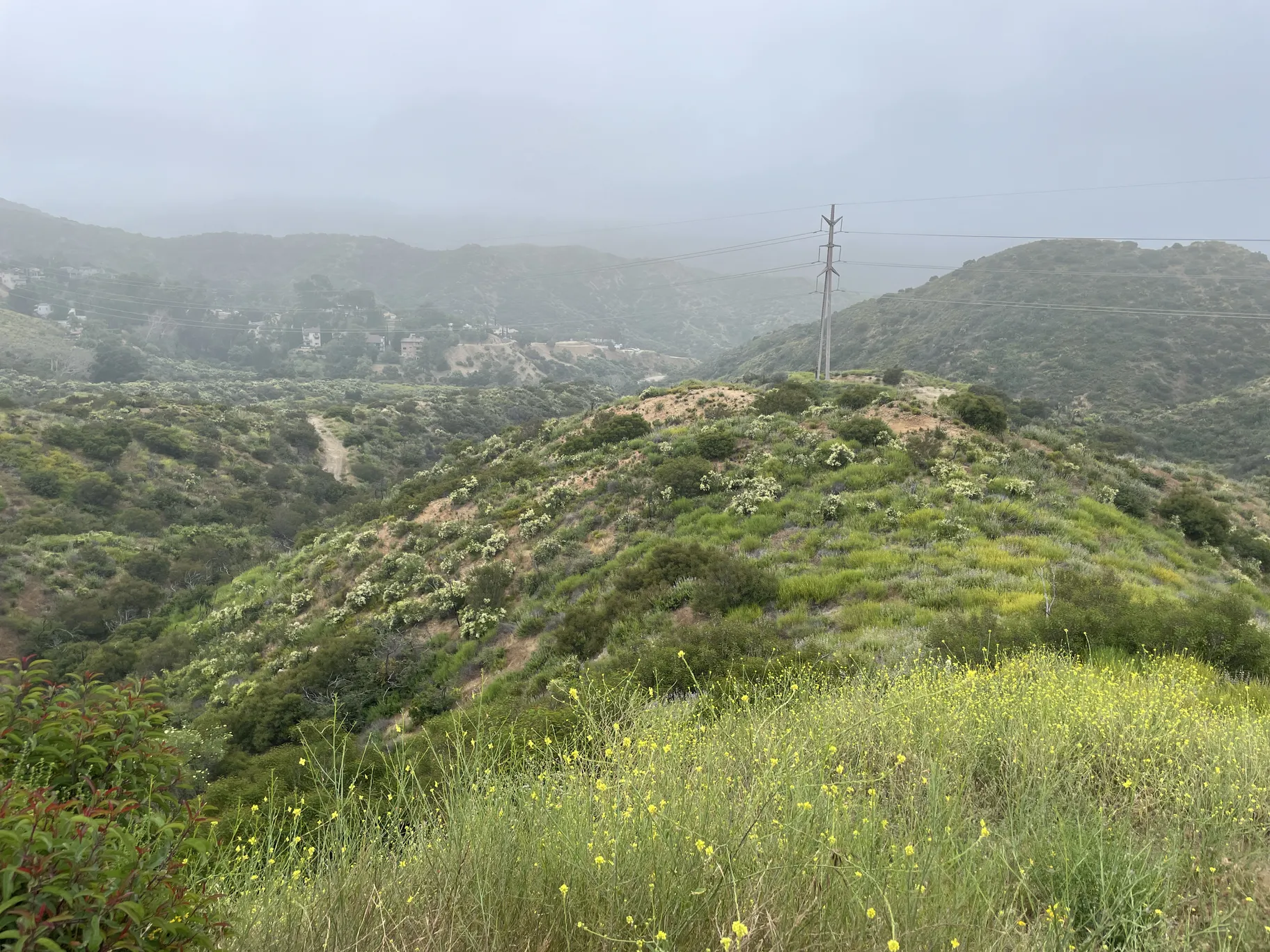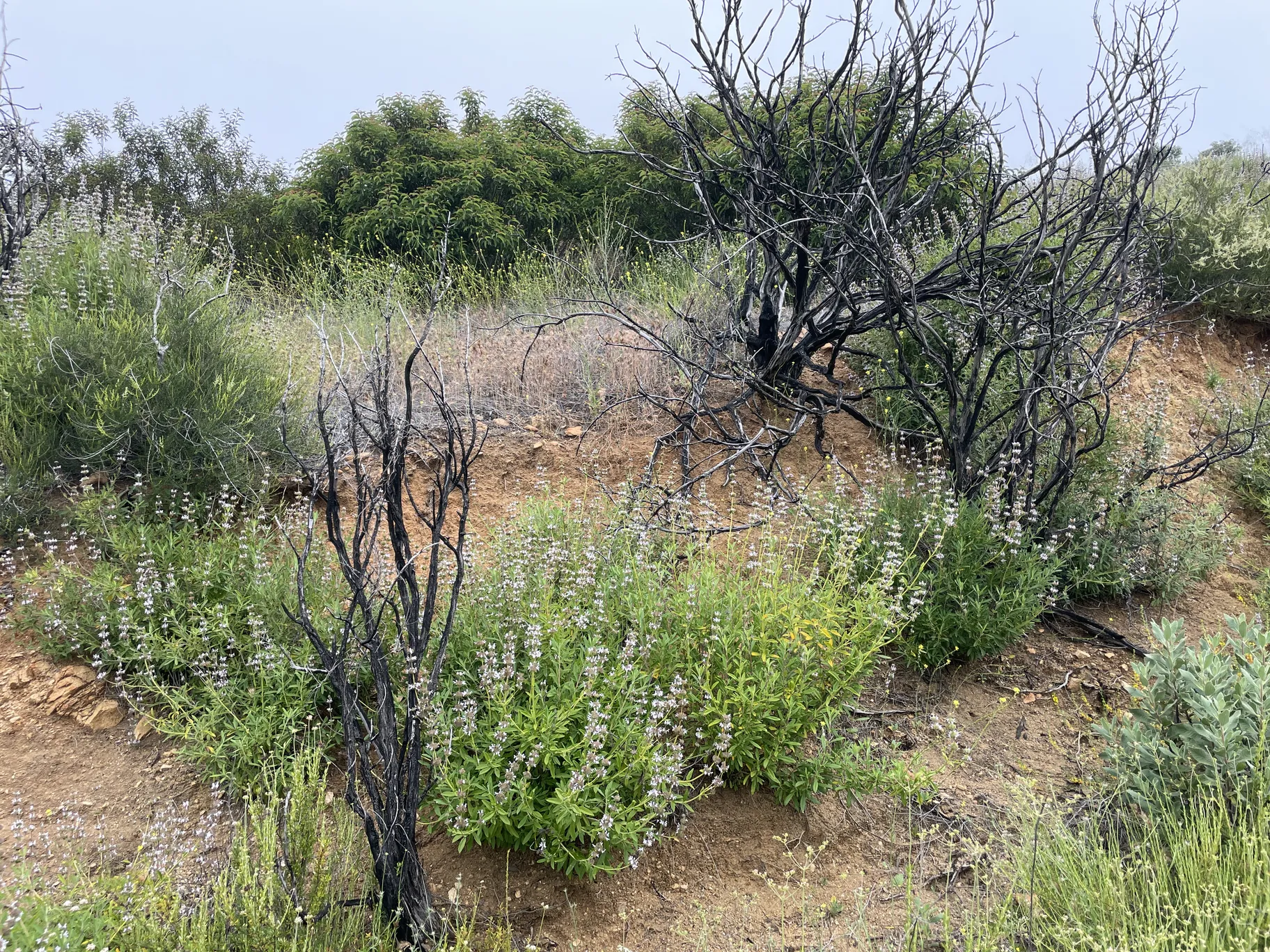The fate of the land was decided 18 years ago. But the fight is far from over.
In the early 2000s, a housing developer proposed building a 900-acre gated community that straddled both sides of the 210 freeway in Tujunga, on the eastern edge of the San Fernando Valley. The company called it “Canyon Hills.”
What the housing developer sees as a blank canvas of opportunity, the neighbors see as a desecration of their quiet hiking respite. They fought back — and lost.
“We found out originally that they wanted to build out here, and I was kind of horrified,” says long-time Tujunga resident Craig Durst. His back porch overlooks the undeveloped Verdugo Mountains, and in the early 2000s, hundreds of people joined him in the fight to stop the development.
“We had many community fundraisers. We had concerts. We had bake sales. I personally set up a booth at the grocery store that said, ‘Do you know what they want to do to your Verdugo Hills?’ I was just trying to inform people what was going on,” he says.
But in 2005, the LA City Council approved a scaled down version of the plan: The developer, Whitebird Inc., agreed to donate 600 of the 900 acres to be preserved, and build homes on the remaining 300 acres closest to Durst’s home. He was devastated.

A housing developer plans to make these mountains shorter and the canyons shallower — to build more than 200 houses on these slopes of the Verdugo Mountains east of the San Fernando Valley. Locals hope to stop the development. Photo by Caleigh Wells.
“I know that people will just say that that's what I am — is a NIMBY,” he says, referring to the acronym Not In My Back Yard. “I suppose I probably am. But I do think that the causes people are complaining about and trying to bring attention [to] are valid.”
The project approval lasts 20 years, and since then, the construction stalled. Finally, in January, the company notified the public that it is seeking a grading permit to lower the height of the mountains and fill the canyons — the first step to building homes.
But meanwhile, both the ecosystem and the way the public thinks about it has changed. A mountain lion started passing through; in 2017, the La Tuna wildfire burned down five homes and threatened hundreds of others. The opponents now believe they have a stronger case.

Evidence of the 2017 La Tuna wildfire still covers the project area. Photo by Caleigh Wells.
So this year, some of those same residents who fought the development before, along with newer neighbors, are fighting the development again – this time with the benefit of social media to reach outside their suburban enclave. They’ve named themselves “No Canyon Hills.” An online petition to stop the development has 170,000 signatures, and most of those people don’t live in Tujunga.
“To see this area wiped out for some gated community is really sad because this is probably one of the most productive zones for wildlife in the entirety of the Verdugo Mountains,” says amateur botanist Devon Christian, who lives a 15-minute drive away. “Destroying these plants to build a gated community, it's honestly pretty gross. Disgusting. And we're basically going to destroy our common heritage just to build a bunch of houses for the already wealthy.”
Christian is part of a team that has spent hours hiking through the project site, logging hundreds of plant and animal species in an attempt to bolster the case that the land should be preserved.

Amateur botanist Devon Christian captures evidence of new growth on an exceedingly rare plant that thrives in the Verdugo Mountain, Malacothamnus davidsonii. Photo by Caleigh Wells.
The trouble is, of course, the project is already approved. So the group started by finding a good environmental lawyer – one close to home.
A local Sierra Club leader named Dean Wallraff had been so upset by the 2005 decision to build the Canyon Hills development, he went to law school at age 57 and became an environmental lawyer. Since then, he stopped the Tejon Ranch Centennial development off the 5 freeway, halfway between Santa Clarita and Bakersfield.
He’s eager for the fight. “That whole big open space there is really beautiful,” Wallraff says of the Canyon Hills site. “The idea of just filling it up with houses grossed me out.”
He argues that an environmental impact report produced before the 2005 approval is now outdated, so the project needs a new one.
Whitebird Inc’s lawyer, Jack Reubens, says that’s wrong. You only need a new environmental review if you try to do something new, and he argues the developer is only doing what it was already allowed to do 18 years ago.
“The alleged goal of the new residents who live near the site, who are now opposing the Canyon Hills project, is for more environmental review. That’s their alleged goal. But the reality is, as they've stated, as recently as this week, is to kill the project,” Reubens says. “That is cold and calculated NIMBYism.”
In fact, the neighbors plan to sue because, Wallraff explains, it will slow the developer down, and with only two years left before the 20-year project approval expires, a delay could be all they need.
“One thing we sometimes do on our side … is we realize that our lawsuit is going to delay the project. And it'll delay it even if we lose,” he says.
The district’s current councilmember, Monica Rodriguez, says her hands are tied. In a statement to KCRW, she explains that she’s not allowed to require another environmental review for a project that was already approved.
Any day now, the city is expected to sign off on the developer’s grading permit, allowing it to start construction.
